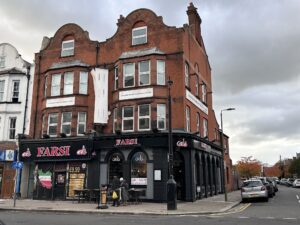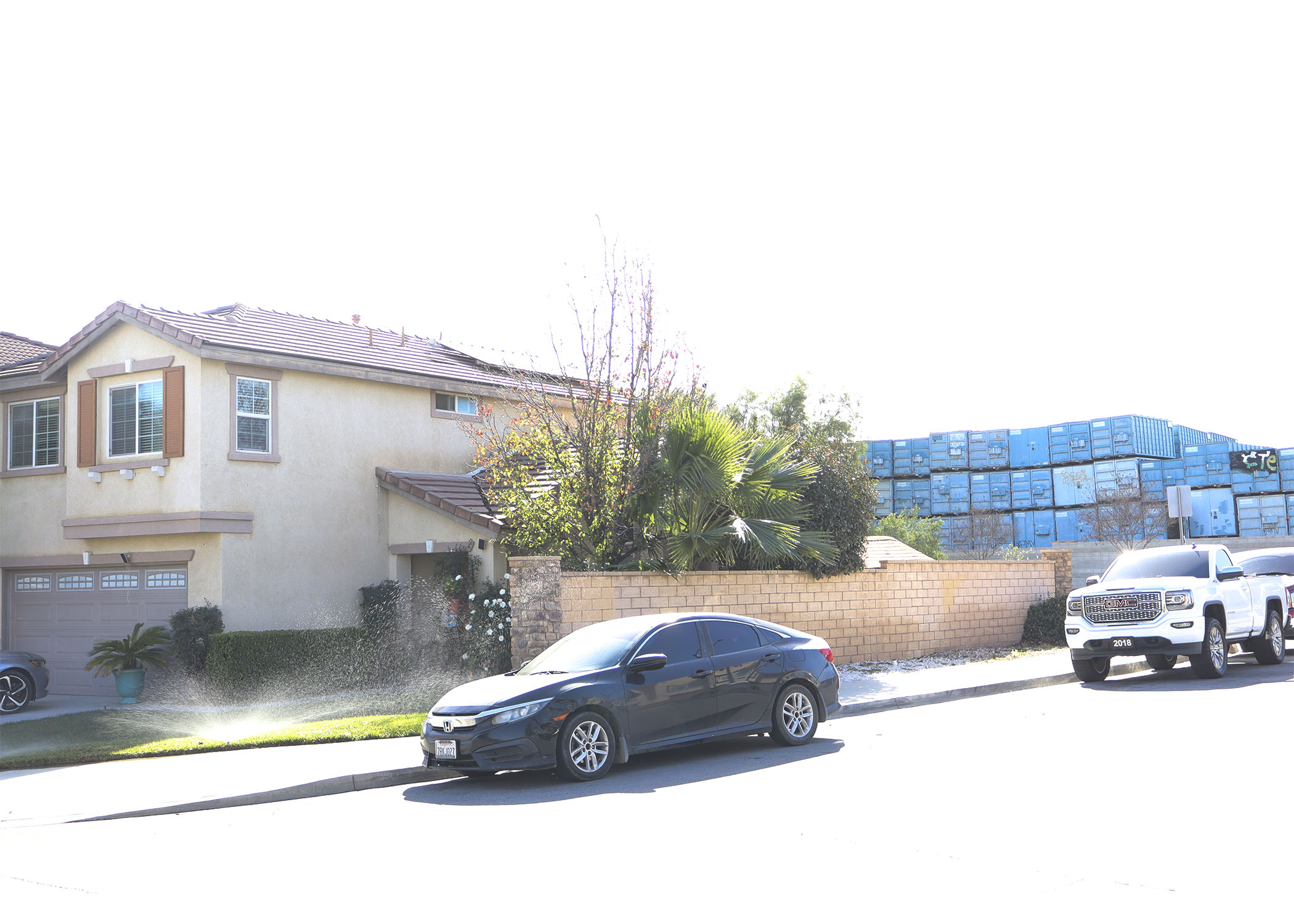(LONDON, England)— On a gray early November morning on Ballards Lane in Finchley, Leyla Imanian waited on customers at Rex Café & Confectionary, selling nuts, cakes, and dates. Packages of Iranian sweets line the shelves, glinting bright gold and turquoise. Saffron and rosewater scents filled the air as customers chattered animatedly in Farsi and English. A window at the back of the shop shows the bakers in another room, molding dough and stirring batter. The shop sits in “Little Tehran” where Persian grocery stores, pastry shops, restaurants, and home goods stores attract both Iranian and British customers.
Imanian immigrated to Britain in 2021, following her husband who moved in 2019 seeking political asylum as a Christian. Initially, she and her two sons moved to Liverpool before relocating to London, Imanian found that the transition was helped by the large Iranian community and a “good feeling with English people.” She praised the British government for helping her family gain political asylum.
Several generations of Iranians have settled in Britain over the past forty years and the community in London numbered 43,852 people born in Iran as of 2021. The community maintains strong ties to their homeland and the ongoing sociopolitical strife. These ties are “more cultural than political, even if they sometimes think it’s political,” says Ali Ansari, a professor of Modern History in the Middle East and founding director of the Institute for Iranian Studies at St. Andrews University. He attributes this strong bond to the group’s deep historical roots.

“Iran” inscription on London tube line [Credit: Maya Mehrara]
For decades, Iranians have been able to visit their homeland easily from the UK, with numerous nonstop flights per week. However, the situation became more complicated in the fall of 2022 with the death of Mahsa Amini, a 22-year-old Kurdish woman after she was jailed for violating the veiling laws by not wearing her hijab correctly. It is widely believed that she was killed in custody by Islamic Regime’s morality police.
In the past year, there have been more than 115 protests in Trafalgar Square in London in support of the Iranian fight against the regime. #Sing4Freedom was a protest marking the one-year anniversary of Mahsa Amini’s death on Sept. 16 in Piccadilly Circus, with hundreds singing the Equality Song in both English and Farsi.
Because social and political factors have impacted Iranians at home and in Britain, it’s become more difficult for the British-Iranians to travel to Iran to visit family and friends. Many, like Imanian, fear returning to Iran. After attending the protests in support of the “Woman, Life, Freedom” movement in London, Imanian was afraid of going back to Iran, worrying that officials knew of her involvement.

Persian restaurant, “Farsi,” in Finchley on Ballards Lane [Credit: Maya Mehrara]
By far, the strongest marker of Iranian presence in London is the culture, with the street signs in Farsi and chelo kebab shops, Iranian schools, and Persian grocery stores. Markets are filled with Iranian imports of rice, pickles, saffron ice cream, and other Iranian-made goods.

Persian shop celebrating 50 years in Finchley, London [Credit: Maya Mehrara]
Shahrzad, a lawyer who asked to be referenced only by her first name for the safety of her family in Iran, immigrated in 2004 and described picking up British habits, like becoming more punctual and eating, “Sunday roast, whereas in Iran at my grandmother’s, it would be called ghormeh sabzi.” Even though she has lived here for nearly two decades and is fully integrated into the London legal system with a law practice, she says, “In a way, you always stay Iranian, so you never become English. However, when I go back home, we always laugh about it. We are like strange creatures because we lose some of the habits.”


